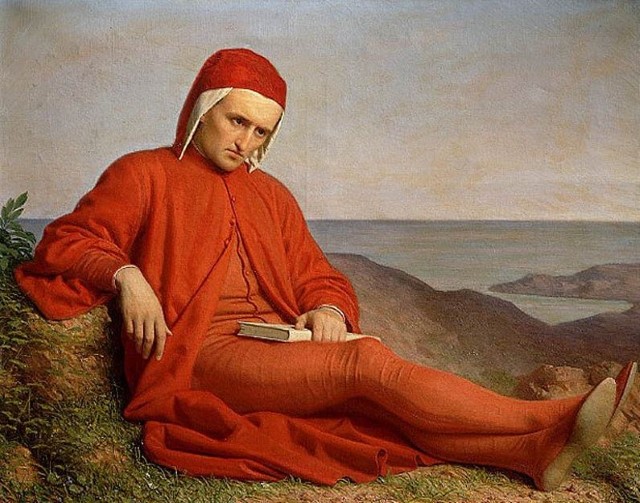
For more than three centuries there were frequent (sometimes violent) disputes between the Malaspina family and the Count-Bishops of Luni regarding their respective powers of administration in the Lunigiana valley. Eventually the disputes were resolved and an agreement signed with the assistance of the poet Dante Alighieri who was being protected by the Malaspina after his expulsion and exile from Florence.
The Peace of Castelnuovo was signed in the bishop’s castle of Castelnuovo Magra, in the Val di Magra, on 6 October 1306, between the Marquis Malaspina and the Count-Bishop of Luni.
Registered by the Sarzanese notary ser Giovanni di Parente di Stupio, the original copy of the Acts of Peace of Castelnuovo are kept in the State Archives of La Spezia.
The documents were found in 1765 (500yrs after Dante’s birth) during archival research commissioned by the last Malaspina of the Terrarossa branch who claimed various rights on the Treschietto fief.
The Acts attest that in Sarzana, in the ancient Piazza della Calcandola, on the morning of 6 October 1306, Dante received from Franceschino Malaspina, Marquis of Mulazzo, a valid power of attorney to conclude, in the name and on behalf of the entire Ghibelline branch of the Malaspina family, known as the Spino Secco, peace with Antonio Nuvolone da Camilla, Count Bishop of Luni. The historic agreement was concluded in the same morning at the bishop’s palace in Castelnuovo Magra and effectively marked the end of the temporal power of the Church in the Lunigiana.
The Peace documents can be read in various publications, including “The ancient archives of the Registry Offices in south-eastern Liguria” – ed. Cassa Di Risparmio della Spezia (1983), in the Italian translation by Amerigo Grassi.
Dante was forever grateful for the hospitality and support of the Malaspinas and described them in glowing terms in The Divine Comedy (Purgatory, VIII, v. 121-139).